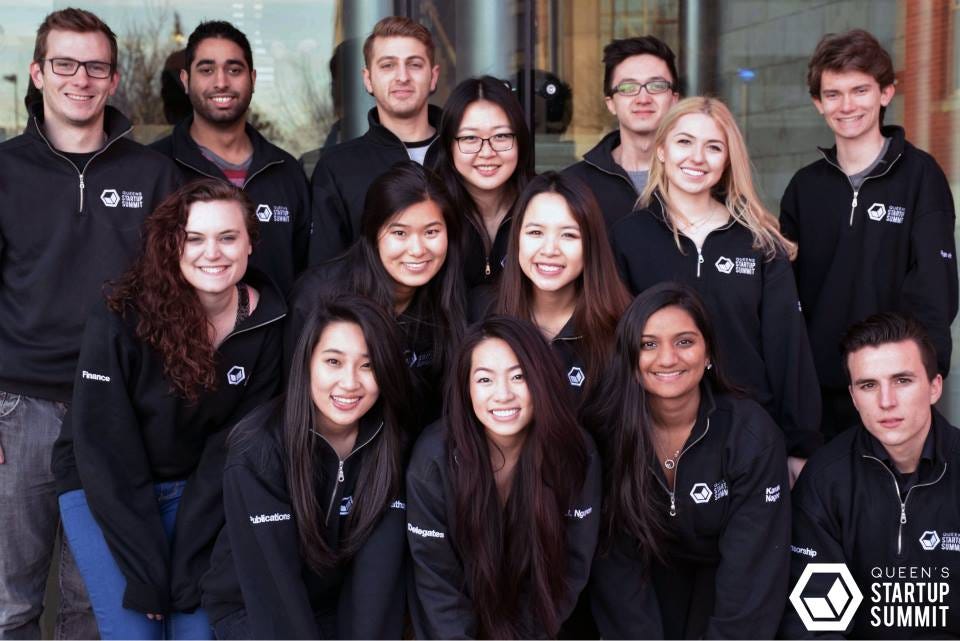How a Quiet Introvert Learned to Sell
And why sales is the most universal skillset that everyone should learn.
I’ve been in software sales for over 5 years now. People often tell me that I strike them as a particularly strong communicator, that sales “seems to come naturally” to me, and that I must have been an extrovert all my life.
These compliments always give me a pang of Imposter Syndrome. Because they couldn’t be further from the truth.
When I was a teenager, I remember being too shy to pick up the phone to order a pizza. If I had to be on the phone for whatever reason, you’d find me pacing rapidly from room-to-room, as if I had some kind of nervous tic. I still pace to this day.
Growing up, I was a pretty reserved kid. Although I had plenty of cousins my age that I socialized with, I was an only child. I had a handful of close friends that I confided in, and I didn’t particularly enjoy being the centre of attention. I’m even told that I was a quiet baby.
It’s no surprise that during my high-school Career Guidance class that my Myers-Briggs Personality test came back with a resounding “I” for Introverted. Following in the footsteps of my father, I decided that I wanted to become an entrepreneur - so I went to Business School.
Much to my surprise, Business School taught me very little about entrepreneurship whatsoever. Everyone was either applying to a potpourri of clubs and extracurriculars to beef up their resumes, or they were specializing their courses in a singular field like Accounting or Finance.
Where was I supposed to learn about what it takes to build a business?
Through a stroke of luck, a good friend of mine (who is now an entrepreneur himself) introduced me to the Cansbridge Fellowship - a scholarship that selects 15 entrepreneurial students from across Canada, and sends them off to Asia for a summer internship. The Fellowship’s unofficial motto? Maximum discomfort for maximum growth.
The only catch - you have to find and land the internship yourself. And you can’t take an internship in a country where you already have family ties. This allowed me to pursue an unpaid internship in Malaysia to work at a startup incubator. Finally, I’d be able to learn from actual entrepreneurs about what it takes to build a business.
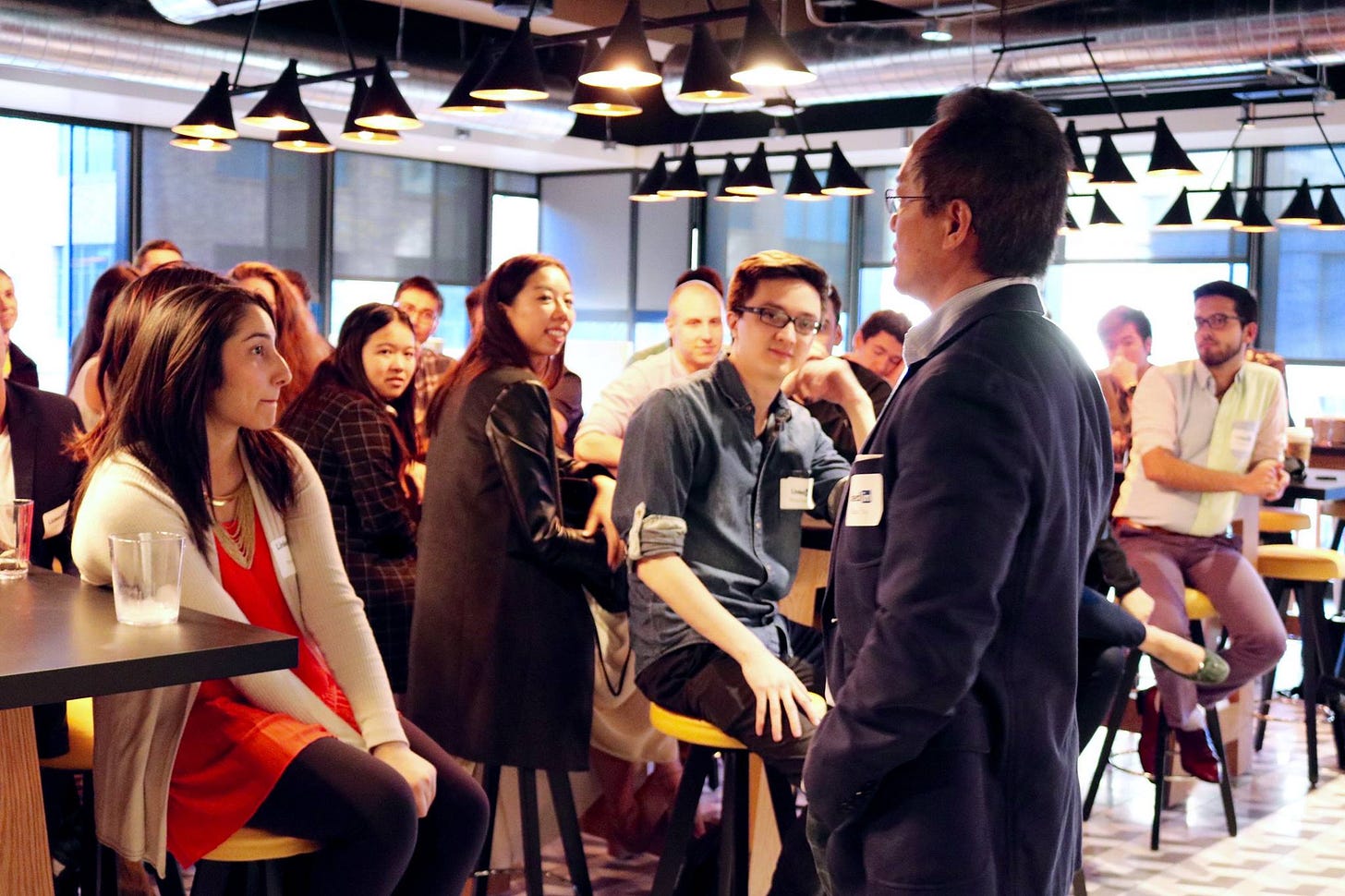
I’ll never forget my first day in Kuala Lumpur. Stepping out of the airport, the air was hot and dewy. The only person I knew in the country was the Co-Founder of the Incubator I was about to join for 10 weeks, and we only spent 30 minutes together via Skype. He didn’t even turn on his video.
I hailed a MyTeksi (Malaysia’s version of Uber at the time) and arrived at a large mansion that looked like it appeared straight out of the 2010 movie Social Network, except… South East Asian. Desks and beanbag chairs were filled with people working on their laptops. Whiteboards and glass panes covered in neatly organized sticky notes dominated the living space.
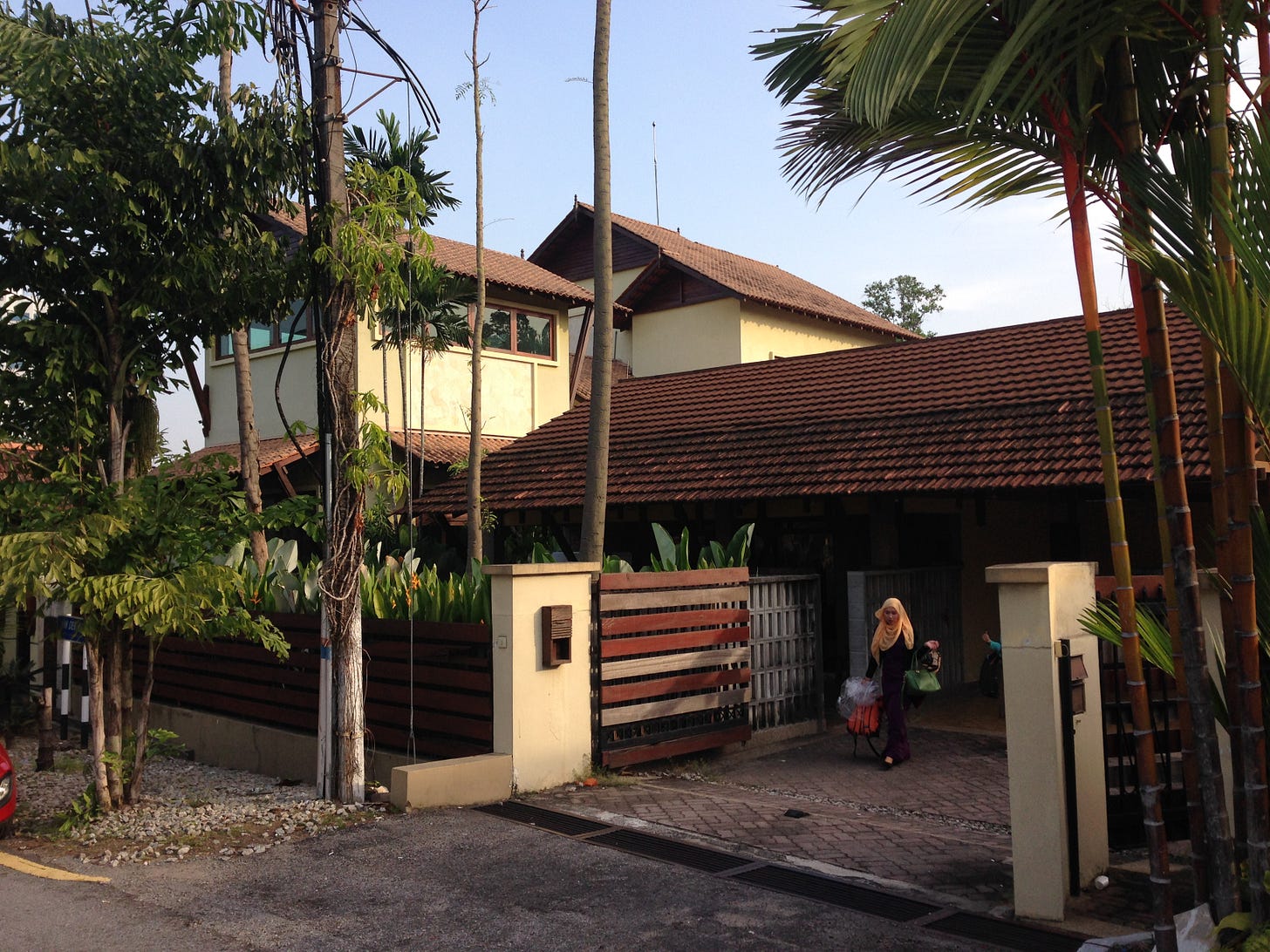
Next to the driveway out front, there was a group of 4 people around a single whiteboard with a crude, tallied scoreboard written on it. They all had their cellphones out. I recognized the CEO from his Skype profile picture and went to introduce myself. That’s when he told me what they were doing.
They called it a “boiler room”. Each of them had gone to a networking event the night prior and collected business cards. They were now calling those business cards to schedule meetings.
They were selling.
The incubator was about ~25 people strong, and the in-person meetings that they were setting were not with small business clientele. They were meeting with executives at Malaysia’s largest banks and telecom providers — Maybank, CIMB Bank, DiGi. Multi-billion dollar enterprises.
My second day in Kuala Lumpur was almost as memorable as the first. I attended my first networking event — a social event hosted at a rooftop bar for entrepreneurs and investors in the KL area. I went with three of my new colleagues to represent our co-working business.
Shortly after we arrived, the organizer of the event, Lingesh, approached us and told us that he’d given us a last-minute time-slot in the Pitch competition. One of us would have to go on stage to pitch our business to the crowd.
Excited by this opportunity, I looked at my colleagues and was met with nervous faces. Two of my colleagues were from France and didn’t have perfect English - they didn’t feel comfortable pitching. My third colleague pitched at a prior event and had bombed. He didn’t want to do it again.
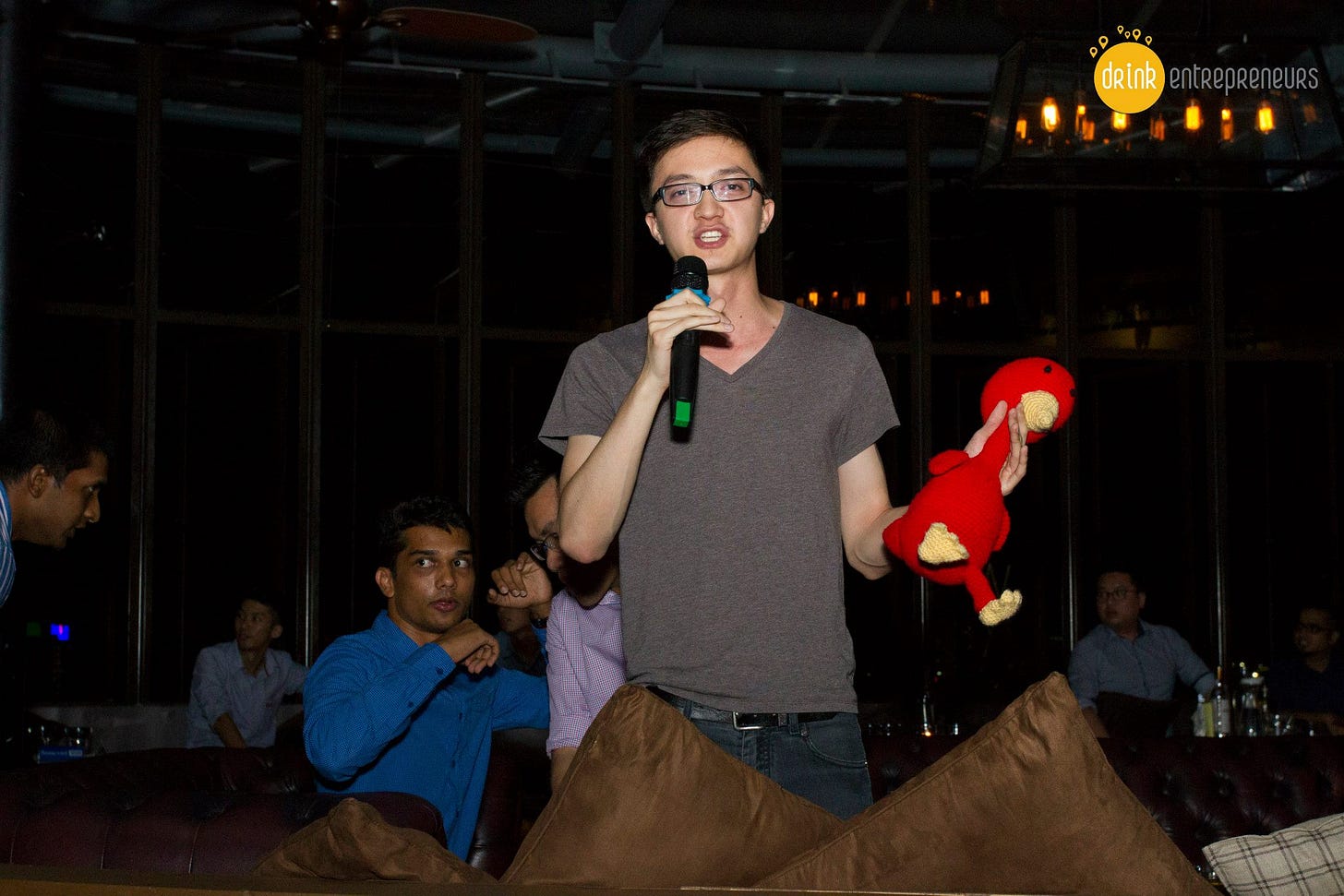
Looking back, this was the most memorable moment of my internship. I didn’t realize it at the time, but this is how I learned one of the fundamental truths of entrepreneurship.
If you want to build a successful business, you need to learn how to sell.
Entrepreneurs are selling all the time. They are selling to early employees to believe in the vision of their business. They are selling to investors in order to raise capital. They are selling their first customers to put their faith into an unproven product or solution. Even a technical Co-Founder is selling their ideas and code to the rest of their team.
I returned to Business School somewhat jaded. There were no sales courses, sales conferences, or sales clubs. After I graduated, I attended the TechVibes Tech Fest to get to know Toronto-based startups that were hiring salespeople. And that’s where I met EventMobi.
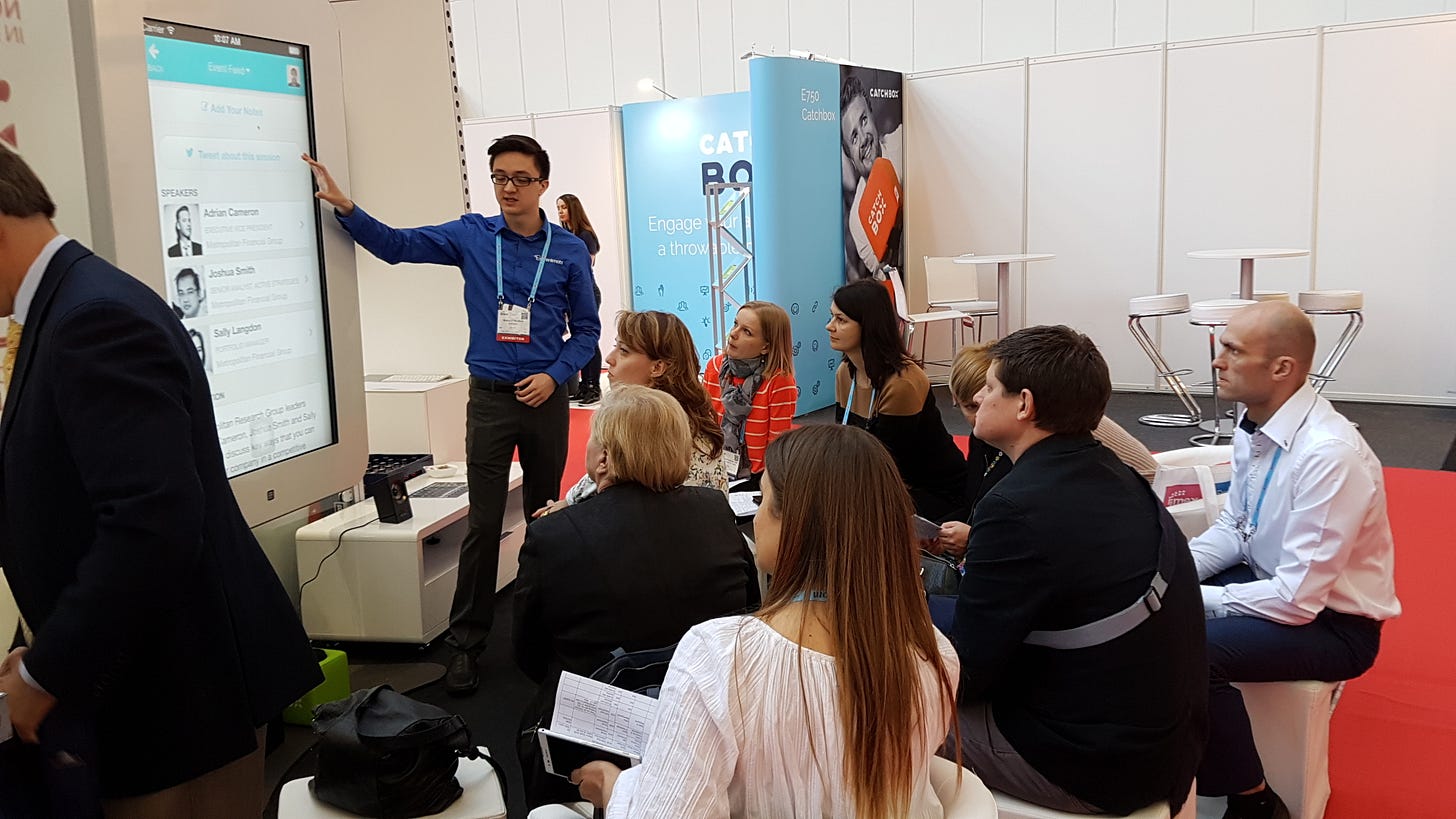
The common advice is to choose a career around your strengths. “Play to your strengths” they often say. And yet I did the exact opposite. I chose a job around my weakness. I went into sales because I knew I’d be bad at it. I didn’t understand it. And I wanted to learn it.
I read To Sell is Human by Daniel Pink. I read Zero to One by Peter Thiel. I learned about Emotional Quotient (EQ), and how it contrasts with IQ. And they all confirmed what I’d learned.
In fact, they made me realize something deeper.
If you want to get what you truly desire out of life, you need to learn how to sell.
The reality is that we are all selling something. Oftentimes, you’re selling yourself. Sometimes you’re selling an idea. A job interview is sales. A first date is sales. Parenting is sales.
Human interaction is sales.
A few years ago, I went on a road-trip with three of my closest friends from high school (including the friend who introduced me to Cansbridge). We were in Los Angeles, at a fancy bar - one of those speakeasies where you needed to tell the bouncer a secret code to get in. We ordered some drinks and stood by the bar, chatting amongst ourselves.
Feeling social, I decided to approach another group standing by the bar. We merged our groups and got to know each other. Being new to the city, we didn’t know anyone else there - but we still met a bunch of random people, and had a great time.
In our Uber back to our AirBnB, one of my friends turned to me and said “Brandon, you’ve really changed since high-school”.
Now, that is the truth.
Over the past 5 years, I’ve grown a deep appreciation and passion for the skill of sales. Even if you’re reading this and you’re not officially in “sales”, I challenge you to look beyond the veneer of used car salesmen and telemarketers - you might be surprised by what you find.
If you’d like to learn more about how sales applies to other areas of life, subscribe to my newsletter, or Follow me on Twitter.




